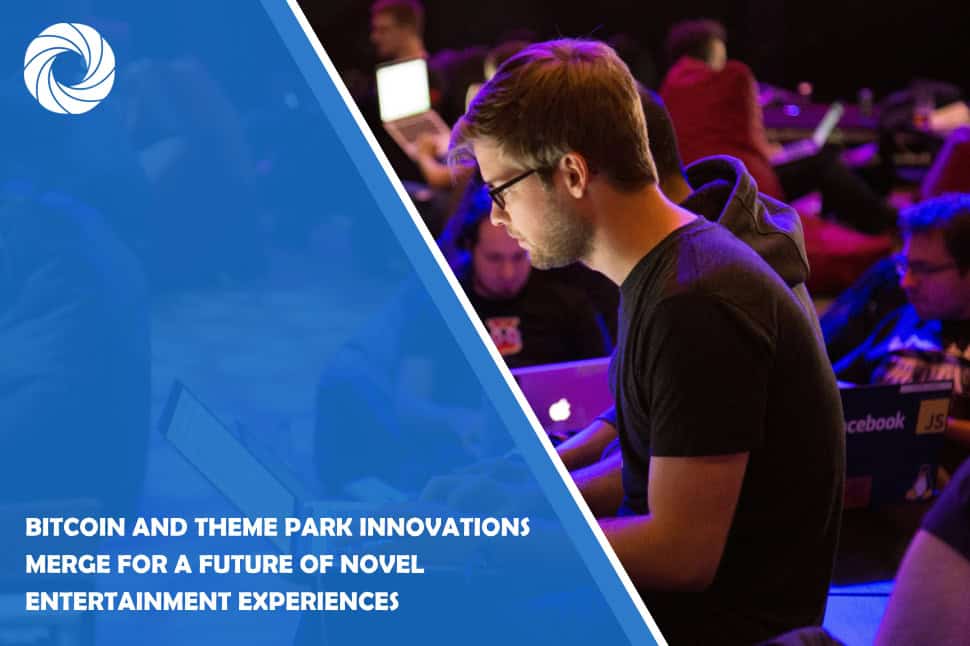The entertainment sector has always ridden the wave of innovative technology to provide unique and exciting entertainment experiences. Today, the worlds of digital currency and entertainment converge, creating unique opportunities and challenges. As Bitcoin continues to surge in popularity and acceptance, theme parks—another ever-evolving entertainment industry—grapple with potential paths towards integrating this disruptive technology into their business operations. An example of this interaction between entertainment and technology is the growing interest in Bitcoin by users of Bitcoincasino.us.
For those unfamiliar with the term, Bitcoin is a decentralized digital currency without a central bank or single administrator. Its value lies in the absence of traditional intermediaries like governments and financial institutions. This provides a sense of privacy and control that is appealing to many consumers. The concept of Bitcoin is similar to that of an online casino, where gamers can place bets and win prizes in the form of digital cryptocurrencies.
Consumers are attracted by Bitcoin's potential for larger returns than traditional investments—a lure similar to that of intense rides and immersive attractions offered at modern theme parks. In this sense, both Bitcoin and theme parks epitomize a shift towards more interactive, personalized, and technologically driven entertainment offerings.
So, what does this shift imply for the intersection of Bitcoin and theme parks? For one, it could signal a more extensive incorporation of Bitcoin into the entertainment sector than previously seen. Indeed, given the rate at which technology is progressing, theme parks could justifiably examine accepting Bitcoin for ticket sales, merchandise, and food.
But the marriage of Bitcoin and theme parks is not without its challenges. First and foremost, fluctuations in the value of Bitcoin could significantly impact ticket sales and park revenues. By accepting Bitcoin, theme parks place themselves at the mercy of these changes in value. For smaller parks, these fluctuations could be particularly destabilizing. Furthermore, there is a question mark concerning security. While Bitcoin is inherently secure due to blockchain technology, its digital nature exposes it to threats such as hacking and exchange crashes.
However, despite these challenges, integrating Bitcoin into theme parks could be a positive step. To this end, information shared by a cryptocurrency specialist at Bitcoincasino.us provides valuable insights. Our expert points out that incorporating Bitcoin into theme park operation could serve as a major selling point, particularly for millennial consumers. In fact, it could even play a crucial role in shaping the future of the entertainment landscape.
“The attraction of Bitcoin lies in being part of a digital revolution. That sentiment holds a lot of appeal for younger generations who have grown up in a world surrounded by the internet and technology,” the Bitcoincasino.us spokesperson said. “Embarking on this cryptocurrency journey presents theme parks with tremendous potential for development and innovation.”
Theme parks, like any other business, must evolve to continue attracting consumers—adopting new technologies is merely part of this evolution. The increasing trends of personalization and immersive experiences further pave the way for digital currency integration into theme parks. Accepting Bitcoin for park admissions would open the door for more sophisticated uses of the technology. Picture a future where every transaction in a theme park—from going on a ride to buying a soda—is processed through digital wallets housing cryptocurrencies.
Consider how the token system operates in theme parks today. Essentially, you're purchasing the theme park's digital currency, which happens to come in physical form. You then use the tokens to access rides and attractions. Extend this concept to Bitcoin, and you have a potentially seamless digital economy within the theme park environment.
Apart from the financial benefits, incorporating Bitcoin could also enhance customer experience and satisfaction—augmenting the current shift toward immersive and personalized theme park experiences. Bitcoin, being a transnational currency, could lessen the hassle of currency exchange for visitors coming from abroad. Moreover, incorporating digital currencies into a park's rewards system could potentially optimize the guest experience—offering a win-win situation for both the theme park provider and the visitor.
Despite the potential benefits, the transition will not happen overnight. It requires significant financial and technical investments, as well as increased cooperation and understanding between the crypto and entertainment sectors. Nevertheless, the eventual marriage of theme parks and Bitcoin is a tantalizing prospect.
In the end, the fusion of these realms, like all technology, is not an end in itself. It should always aim to augment the human experience. As long as the implementation of Bitcoin in theme parks provides a tangible difference in entertainment and satisfaction for consumers, it is a development worth embracing.
